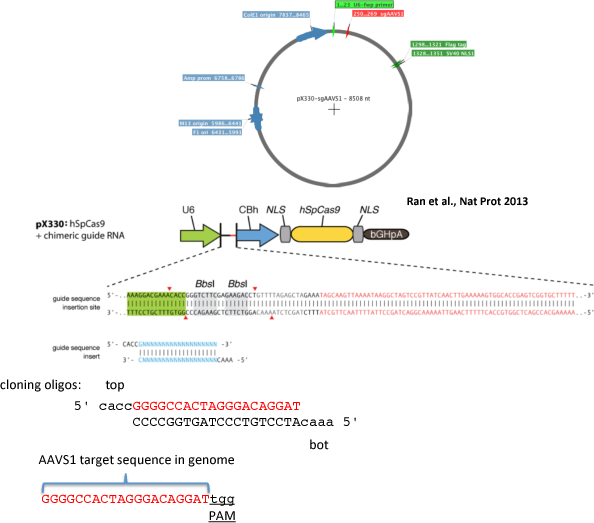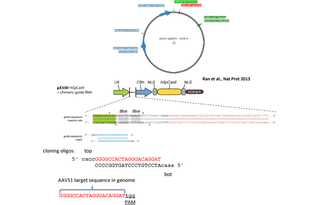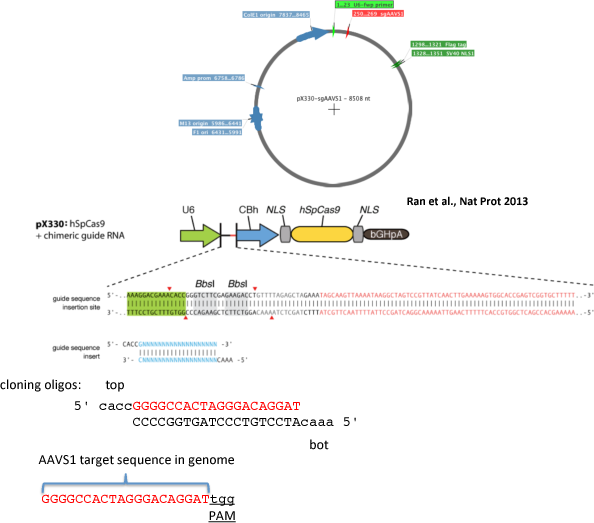-
PurposeCas9/CRISPR vector for cut at human AAVS1 gene intron1
-
Depositing Lab
-
Sequence Information
Ordering
| Item | Catalog # | Description | Quantity | Price (USD) | |
|---|---|---|---|---|---|
| Plasmid | 85802 | Standard format: Plasmid sent in bacteria as agar stab | 1 | $85 | |
Backbone
-
Vector backbonepX330
-
Backbone manufacturerFeng Zhang laboratory (Addgene Plasmid #42230 )
- Backbone size w/o insert (bp) 8488
- Total vector size (bp) 8508
-
Vector typeMammalian Expression
Growth in Bacteria
-
Bacterial Resistance(s)Ampicillin, 100 μg/mL
-
Growth Temperature37°C
-
Growth Strain(s)DH5alpha
-
Copy numberHigh Copy
Gene/Insert
-
Gene/Insert namePPP1R12C
-
Alt nameAAVS1 insertion site (gene symbol PPP1R12C)
-
gRNA/shRNA sequenceGGGGCCACTAGGGACAGGAT
-
SpeciesH. sapiens (human)
-
Entrez GenePPP1R12C (a.k.a. AAVS1, LENG3, MBS85, p84, p85)
Cloning Information
- Cloning method Restriction Enzyme
- 5′ cloning site BbsI (destroyed during cloning)
- 3′ cloning site BbsI (destroyed during cloning)
- 5′ sequencing primer U6-fwd (Common Sequencing Primers)
Resource Information
-
Supplemental Documents
-
Article Citing this Plasmid
Terms and Licenses
-
Academic/Nonprofit Terms
-
Industry Terms
- Not Available to Industry
Trademarks:
- Zeocin® is an InvivoGen trademark.
These plasmids were created by your colleagues. Please acknowledge the Principal Investigator, cite the article in which the plasmids were described, and include Addgene in the Materials and Methods of your future publications.
-
For your Materials & Methods section:
pX330-sgAAVS1 was a gift from Roland Friedel (Addgene plasmid # 85802 ; http://n2t.net/addgene:85802 ; RRID:Addgene_85802) -
For your References section:
Gene signatures of quiescent glioblastoma cells reveal mesenchymal shift and interactions with niche microenvironment. Tejero R, Huang Y, Katsyv I, Kluge M, Lin JY, Tome-Garcia J, Daviaud N, Wang Y, Zhang B, Tsankova NM, Friedel CC, Zou H, Friedel RH. EBioMedicine. 2019 Apr 2. pii: S2352-3964(19)30209-9. doi: 10.1016/j.ebiom.2019.03.064. 10.1016/j.ebiom.2019.03.064 PubMed 30952620





